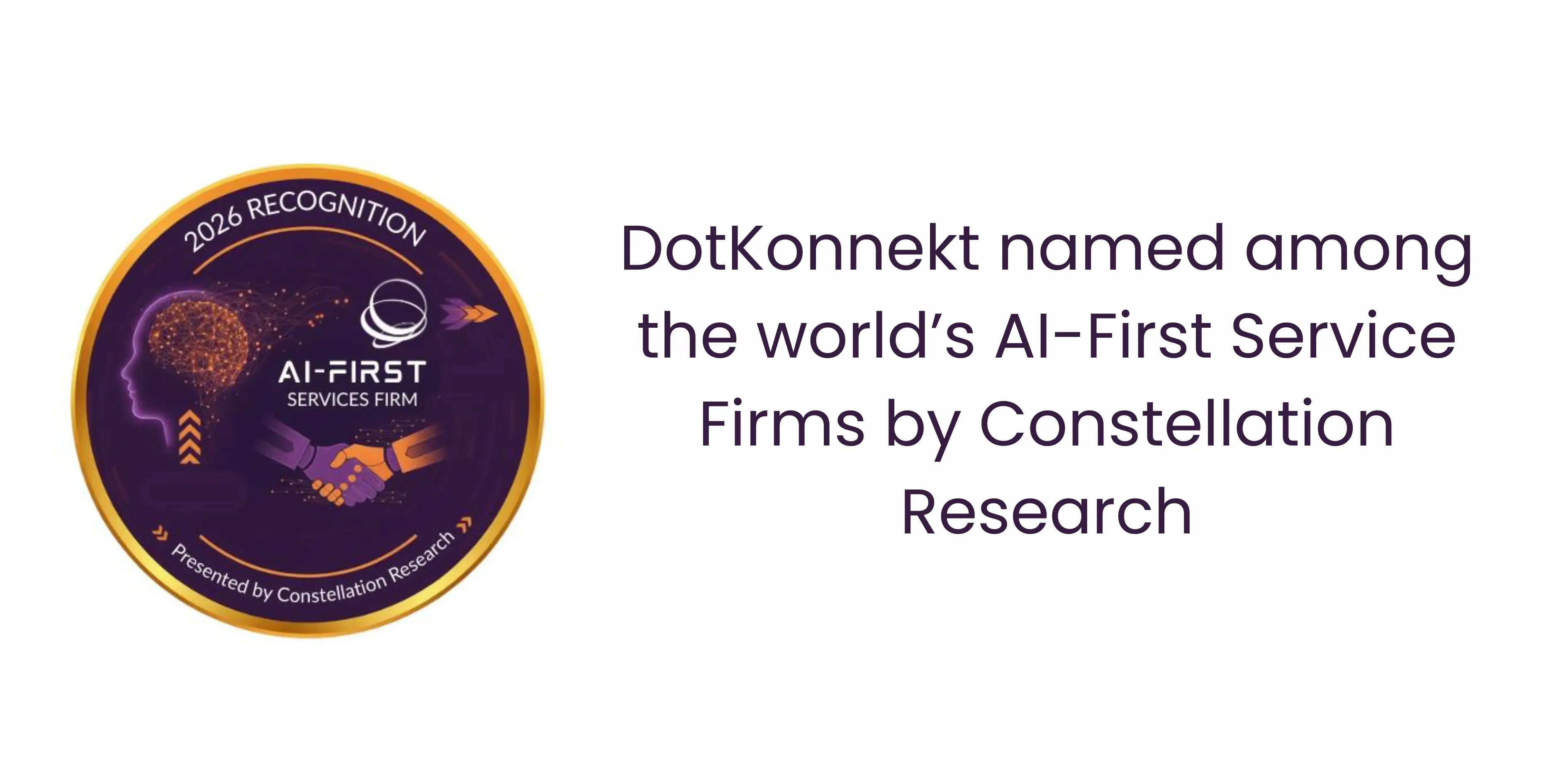

Singapore and New York, NY — January 21, 2026 — DotKonnekt today announced it has been recognized by Constellation Research as one of its inaugural AI-First Consulting Firms, a distinction highlighting organizations leading the transformation of consulting through AI-native operating models, digital labor, and decision automation.
Constellation Research’s AI-First Consulting Firms recognition identifies services organizations that demonstrate measurable adoption of digital labor, strong revenue productivity, and the ability to deploy AI agents in production to deliver outcomes at scale. The list is based on surveys, analyst briefings, customer references, and market evaluation.
“AI marks a technology revolution of exponential scale, unlike anything we’ve seen before,” said R ‘Ray’ Wang, Founder and CEO of Constellation Research. “AI-first consulting firms are proving that small, highly effective teams, augmented by digital labor, can outperform legacy behemoths in speed, efficiency, and revenue productivity.”
“AI is a once-in-a-generation shift in how industries o perate, compete, and create value,”said Dhiraj Jain, Co-Founder and CEO of DotKonnekt. “The future of enterprise AI will be defined by those who can operationalize intelligence safely, economically, and at scale. In our focus sectors, success requires a deep understanding of business context, domain workflows, and legacy realities. We turn that intelligence into production-grade systems enterprises can evolve and scale with full control.”
“Enterprises are done with AI experimentation,” said Chandan Mahajan, Co-Founder and Chief Growth Officer of DotKonnekt. “They want speed to value, control over their AI stack, and confidence in what they put into production. By combining deep industry expertise, a cloud-, model-, and framework-agnostic AI Studio, reusable agentic templates, and embedded execution, we help clients move from AI ambition to measurable business outcomes in weeks, not years.”
The full listing can be found here: https://www.constellationr.com/communities/ai-first-service-firms
For more information about DotKonnekt, visit www.dotkonnekt.com.
About DotKonnekt
DotKonnekt is a full-stack Vertical AI Execution Engine for Consumer and Supply Chain enterprises. The company helps organizations move beyond fragmented AI experiments through an integrated execution model that combines domain-led consulting, cloud-, model-, and framework-agnostic AI Studio, reusable agentic templates, and embedded execution teams.
Built by industry veterans with decades of hands-on experience, DotKonnekt gives enterprises full control over their AI stack while avoiding platform and vendor lock-in. Its approach emphasizes rapid deployment, deep alignment with real business workflows, and production-grade systems that scale safely and evolve as enterprise needs change.
DotKonnekt is headquartered in Singapore, with offices in Bengaluru, New York, Palo Alto, and Dubai, and operations across the United States, the Middle East, and India.